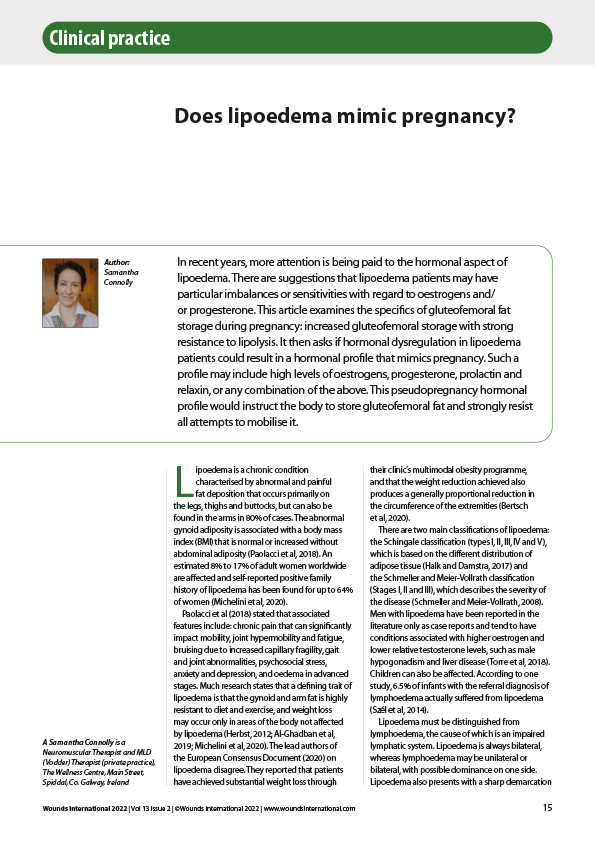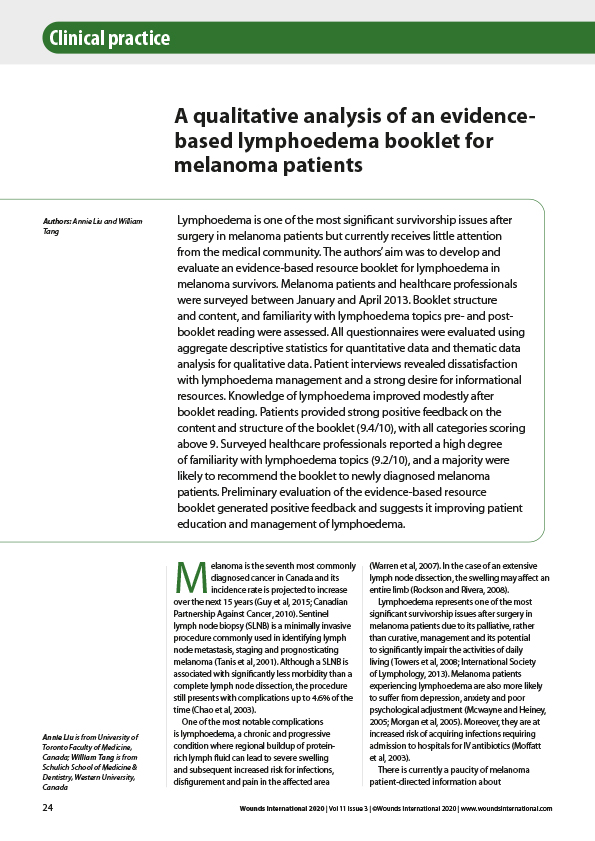This paper reports on a review of the literature on liposuction for women with lipoedema and those with Dercum’s disease. The aims were: to identify the outcomes from liposuction in these two groups; and describe adverse effects reported in the studies. A total of 10 studies met the inclusion and exclusion criteria, dated between 2006–2019. Improvements in pain, quality of life and mobility were common outcomes. There were indications that reliance on conservative treatments reduced after liposuction. The incidence of adverse effects appeared modest, including minor haematomas, postoperative swelling, orthostatic reactions, temporary bruising and burning sensations. However, the numbers studied were relatively small, particularly relating to Dercum’s disease. Findings were limited by retrospective evaluations, use of poorly validated tools and relatively short follow-up periods in some studies. There were no randomised clinical trials. Lack of standardisation made it challenging to analyse and compare outcomes across different studies. Liposuction appears to play a role as a treatment option for some women in managing symptoms. However, further research is required to better explore efficacy and cost-effectiveness, monitor adverse effects, inform decisionmaking and identify key advice for women who undergo liposuction.




